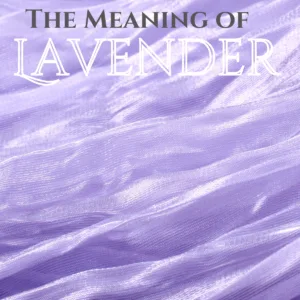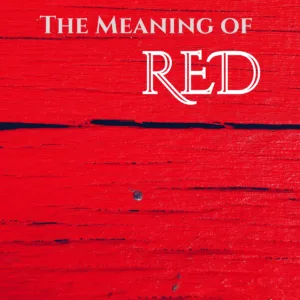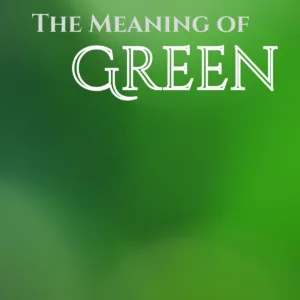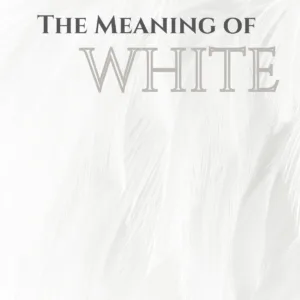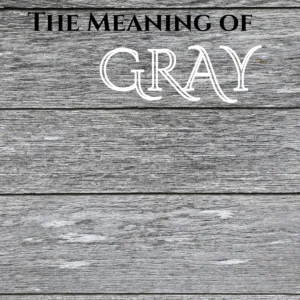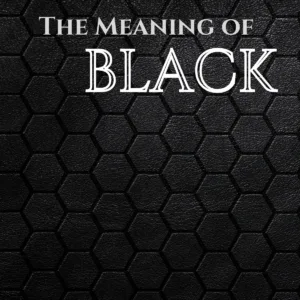Colors have long been associated with different meanings and emotions. From the vibrant red of passion to the calming blue of tranquility, each color carries its own symbolism. One color that holds a special significance is indigo.

The History of the Color Indigo
Indigo is a deep and rich color that falls between blue and violet on the color spectrum. It has a long and fascinating history, dating back thousands of years. The name “indigo” comes from the Greek word “indikon,” meaning “from India.”
Indigo dye has been used for centuries, particularly in textile production. It was highly valued for its vibrant hue and ability to resist fading. In fact, indigo was once considered a luxury item and was even used as a form of currency in some cultures.
The Symbolism of Indigo
Indigo is often associated with several symbolic meanings, including:
Spirituality and Intuition
Indigo is often linked to spirituality and intuition. It is believed to enhance one’s spiritual awareness and deepen their connection to the divine. In many cultures, indigo is associated with the third eye chakra, which is believed to be the center of intuition and spiritual insight.
Those drawn to the color indigo may have a strong sense of intuition and a desire for spiritual growth. They may also be highly sensitive to energy and have a natural ability to understand and interpret the unseen.
Wisdom and Knowledge
Indigo is also associated with wisdom and knowledge. It is often seen as a color of intellect and deep understanding. People who are drawn to indigo may have a thirst for knowledge and a desire to constantly learn and expand their horizons.
Indigo is often linked to the pursuit of wisdom and the exploration of the unknown. It encourages deep thinking and introspection, making it a color favored by philosophers, scholars, and those on a quest for knowledge.
Mystery and Mysticism
Indigo has an air of mystery and mysticism surrounding it. Its deep and dark shade evokes a sense of the unknown and the hidden. It is often associated with magic, spirituality, and the occult.
Those who are drawn to indigo may have a fascination with the mystical and a desire to explore the depths of the unknown. They may be intrigued by the mysteries of the universe and have a natural inclination towards the esoteric.
The Cultural Significance of Indigo
Indigo holds cultural significance in many parts of the world. Here are a few examples:
India
In India, indigo has a rich history and is deeply ingrained in the culture. It is associated with spirituality, wisdom, and purity. In Hinduism, indigo is often used in religious ceremonies and is believed to bring good fortune and ward off evil spirits.
Indigo dyeing techniques, such as tie-dye and block printing, have been practiced in India for centuries. The intricate patterns and vibrant colors created with indigo are a testament to the country’s rich textile heritage.
Japan
In Japan, indigo is known as “ai” and has been used for centuries to dye fabrics. The traditional Japanese dyeing technique known as “shibori” often utilizes indigo to create intricate and beautiful patterns.
Indigo is also associated with purity and protection in Japanese culture. It is believed to ward off evil spirits and bring good luck. In some regions, newborn babies are wrapped in indigo-dyed cloth to protect them from harm.
West Africa
Indigo holds great cultural significance in West Africa, particularly in countries such as Nigeria and Mali. The indigo dyeing technique known as “adire” is practiced by Yoruba women, who create intricate patterns on fabric using indigo paste.
Indigo-dyed cloth is often used for special occasions and celebrations in West Africa. It is also associated with status and wealth, as indigo was once a highly valued and expensive commodity.
The Psychology of the Color Indigo
In the realm of psychology, indigo is believed to have a profound impact on our emotions, behavior, and mental state.
Emotional Effects of Indigo
Indigo is known to evoke a sense of calmness and tranquility. It has a soothing effect on the mind and can help to alleviate stress and anxiety. This color is often associated with deep emotions and introspection, making it a popular choice for meditation and relaxation practices.
Behavioral Effects of Indigo
Indigo is believed to stimulate creativity and imagination. It encourages deep thinking and introspection, which can lead to innovative ideas and problem-solving. This color is often associated with individuals who are highly intuitive and insightful.
Mental Effects of Indigo
Indigo is thought to stimulate the third eye chakra, which is associated with intuition and spiritual awareness. It is believed to enhance our ability to connect with our inner selves and tap into our higher consciousness. Indigo is also associated with increased focus and concentration, making it a beneficial color for studying and intellectual pursuits.
The Color Indigo in Nature
In nature, this captivating hue can be found in various forms, adding a touch of beauty and wonder to the world around us.
Flowers and Plants
Indigo flowers are a sight to behold, with their vibrant petals standing out against the green foliage. One example is the indigofera plant, which produces clusters of small, delicate flowers in shades of indigo. Another stunning example is the morning glory, which boasts trumpet-shaped blooms in various shades of blue, including indigo.
Marine Life
The ocean is home to numerous creatures that showcase the color indigo. From the majestic blue whale to the elusive indigo hamlet fish, these marine animals captivate us with their indigo-hued bodies. Coral reefs also feature stunning indigo-colored corals, creating a mesmerizing underwater landscape.
Minerals and Gems
Indigo can also be found in the world of minerals and gems. Tanzanite, a rare and precious gemstone, displays a deep blue-violet hue that is reminiscent of indigo. Lapis lazuli, a semi-precious stone, features a rich indigo color interspersed with golden flecks, making it a favorite among jewelry enthusiasts.
The Meaning of Indigo Color Aura
An aura is an energetic field that surrounds and emanates from a person’s body. It is believed to reflect their emotional, mental, and spiritual state. Each color of the aura is associated with different qualities and characteristics. In this article, we will explore the meaning of the indigo color aura.
Indigo Color Aura: Intuition and Spirituality
A person with an indigo color aura is often associated with intuition, spirituality, and a deep connection to the higher realms. Indigo is a rich and deep shade of blue that represents wisdom, insight, and inner knowing. Those with an indigo aura are often highly intuitive and have a strong sense of spiritual awareness.
People with an indigo aura are often natural healers and have a deep desire to make a positive impact on the world. They are often drawn to spiritual practices such as meditation, energy healing, and psychic development. They have a strong sense of empathy and compassion, and are often able to understand and connect with others on a deep level.
Indigo Color Aura: Traits and Characteristics
Individuals with an indigo aura often possess certain traits and characteristics. They are often highly sensitive and may be more prone to experiencing intense emotions. They have a strong sense of justice and are passionate about fighting for what they believe in.
People with an indigo aura are often deep thinkers and have a natural curiosity about the mysteries of life. They are often drawn to exploring philosophical and metaphysical concepts. They have a strong desire for knowledge and understanding and are constantly seeking to expand their awareness.
Final Thoughts
Indigo is a color that carries deep symbolism and cultural significance. From its association with spirituality and intuition to its connection to wisdom and knowledge, indigo holds a special place in the world of color symbolism.
The color indigo adds a touch of enchantment to nature. Whether it’s in the form of flowers, marine life, or precious gems, indigo never fails to captivate our senses and remind us of the beauty that exists in the natural world.
The indigo color aura is associated with intuition, spirituality, and a deep connection to the higher realms. Those with an indigo aura are often natural healers, possess strong empathy, and have a deep desire for knowledge and understanding.
